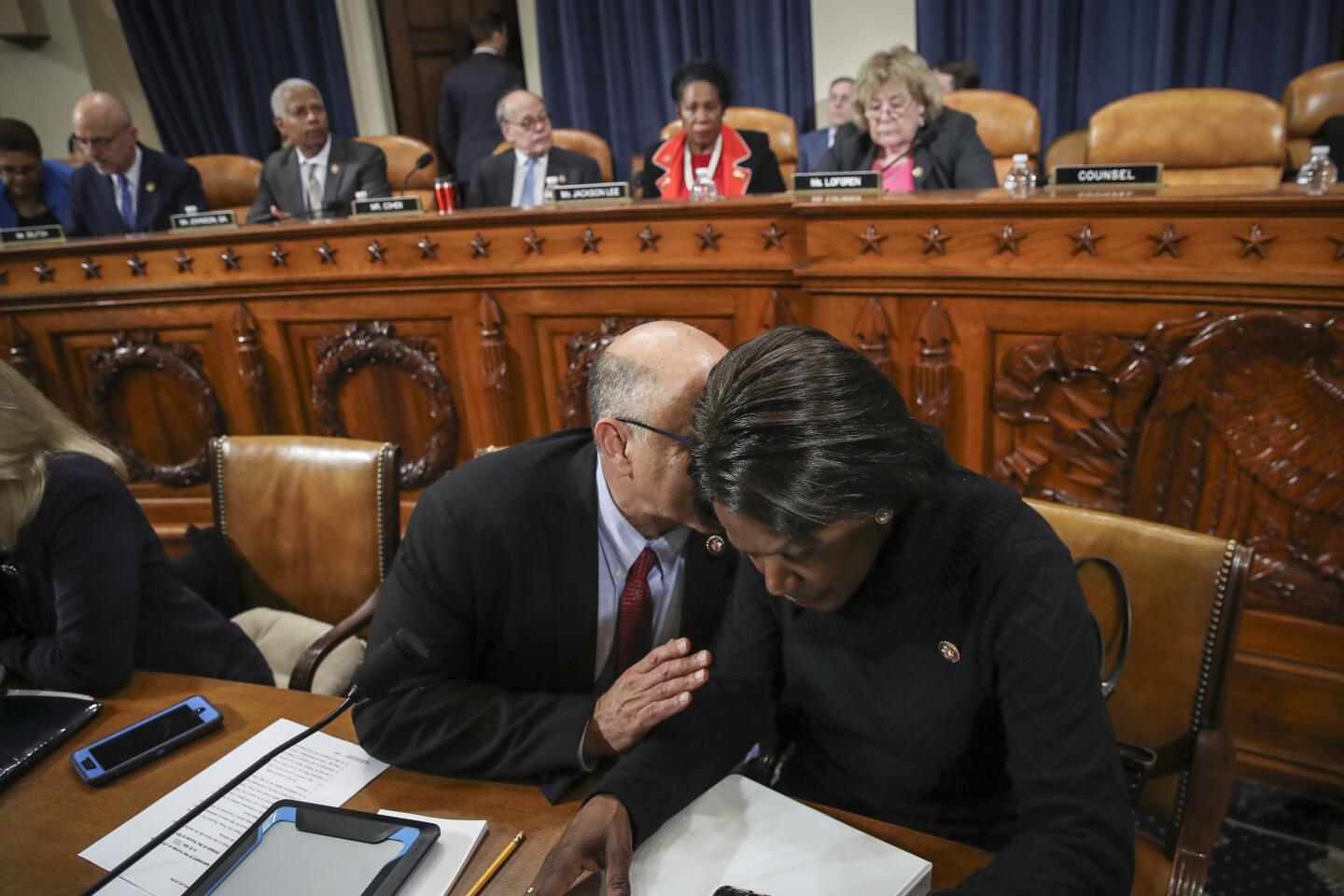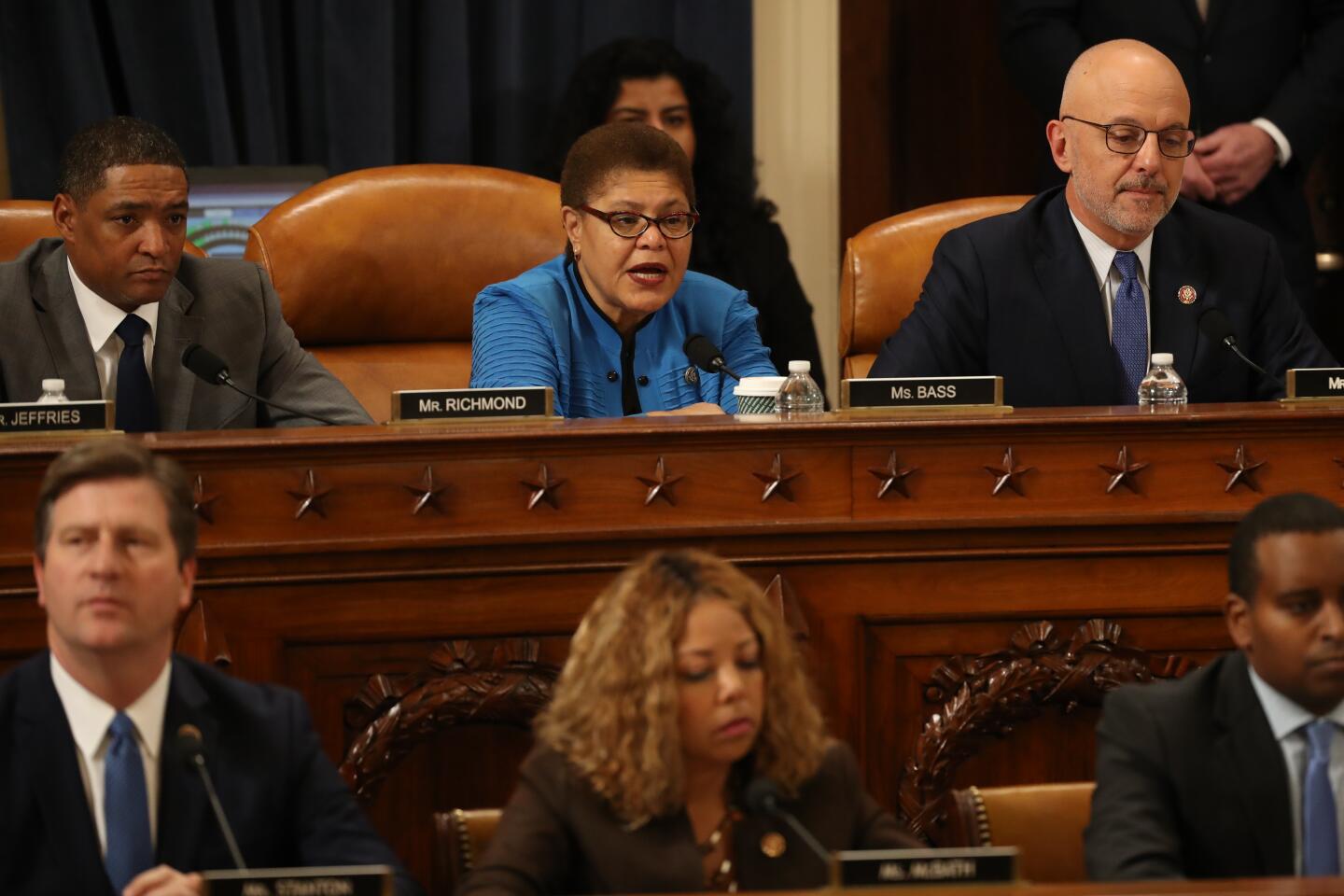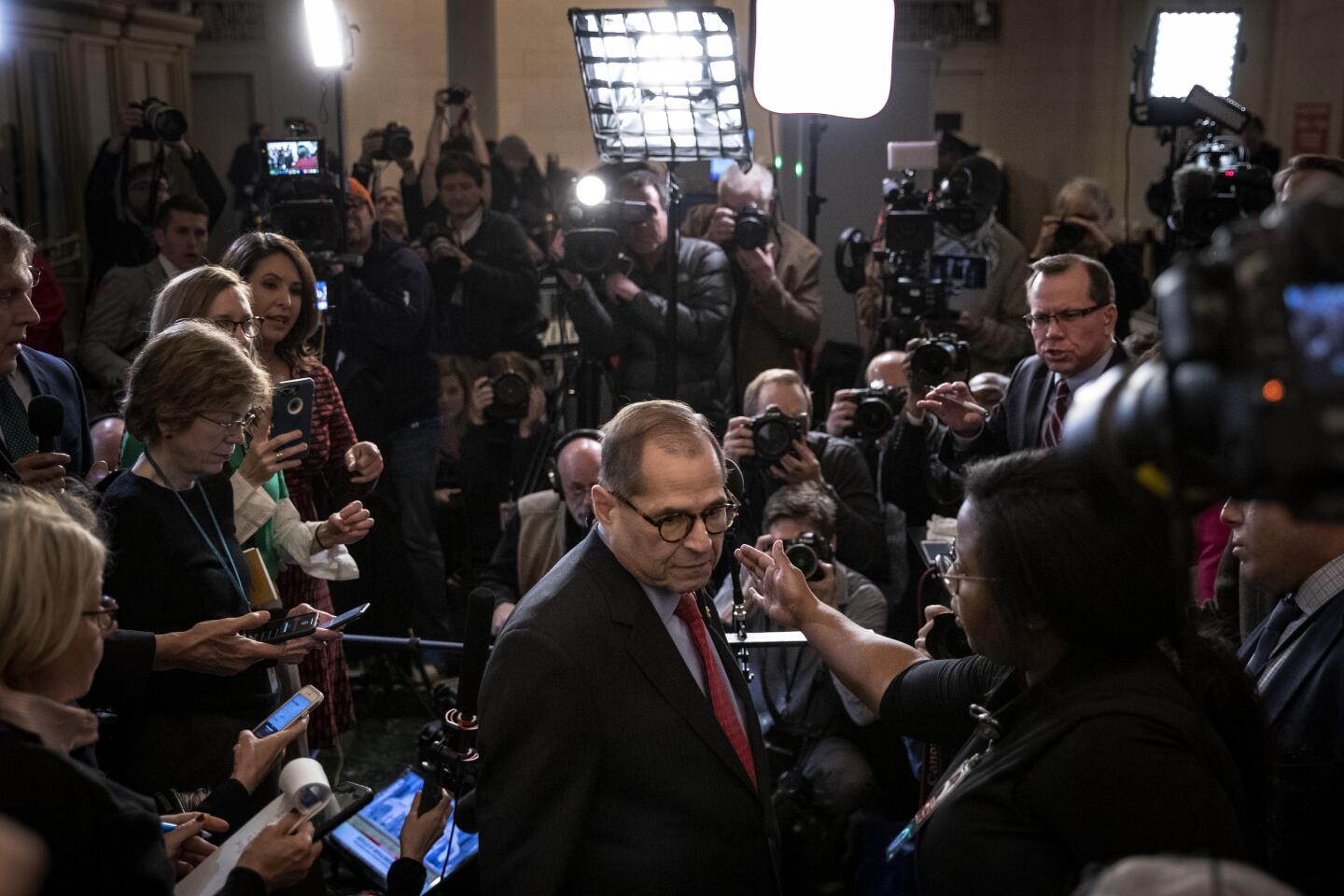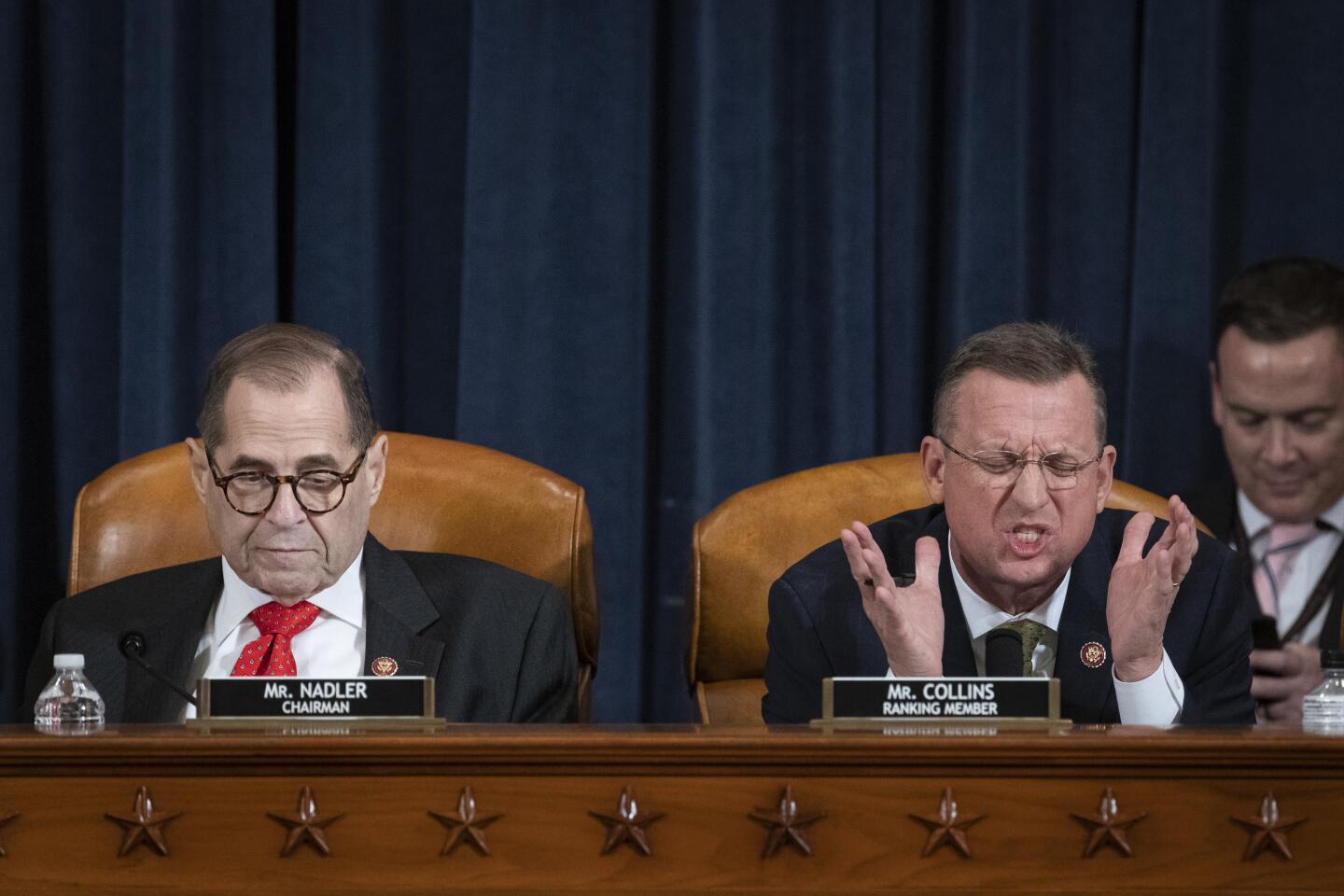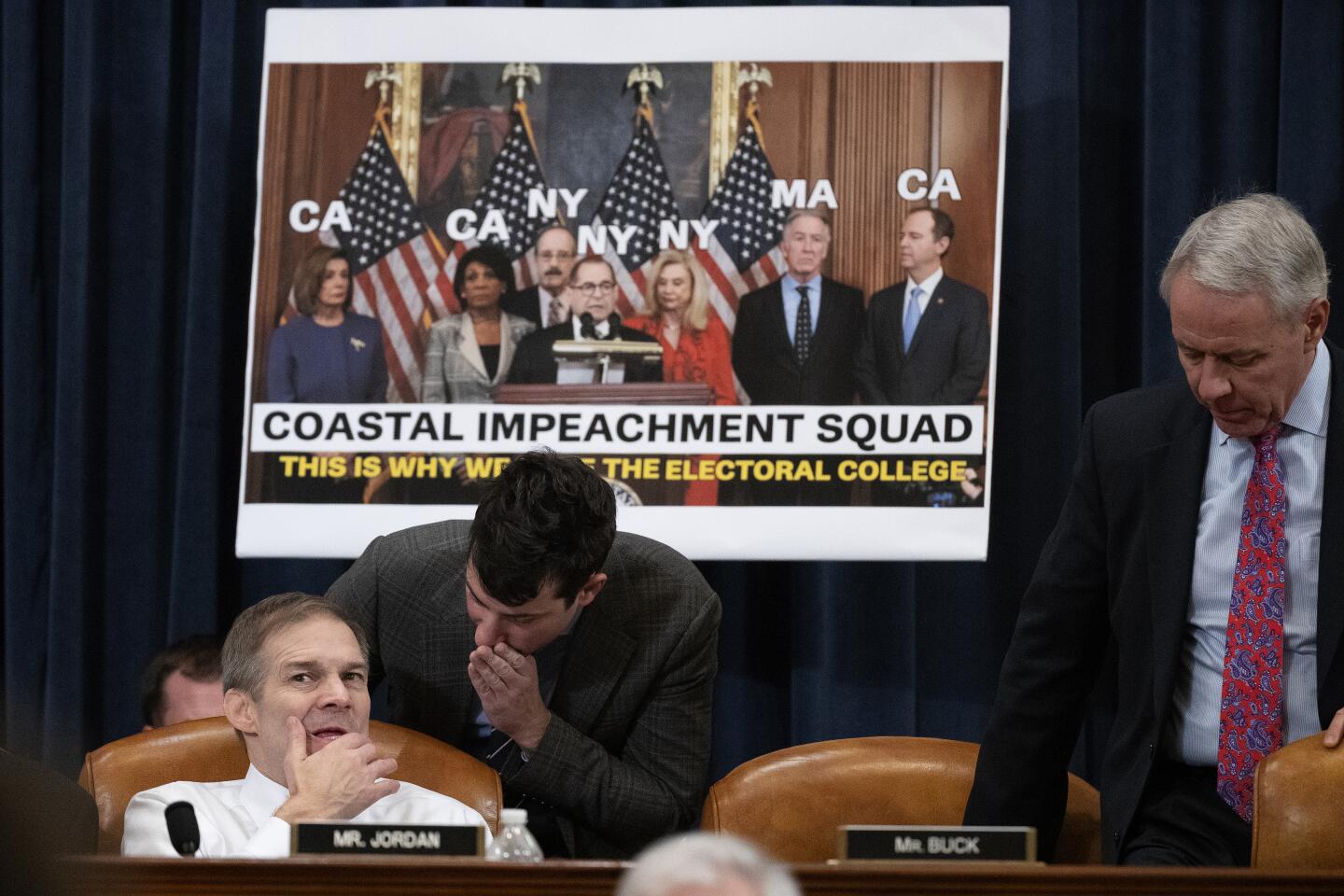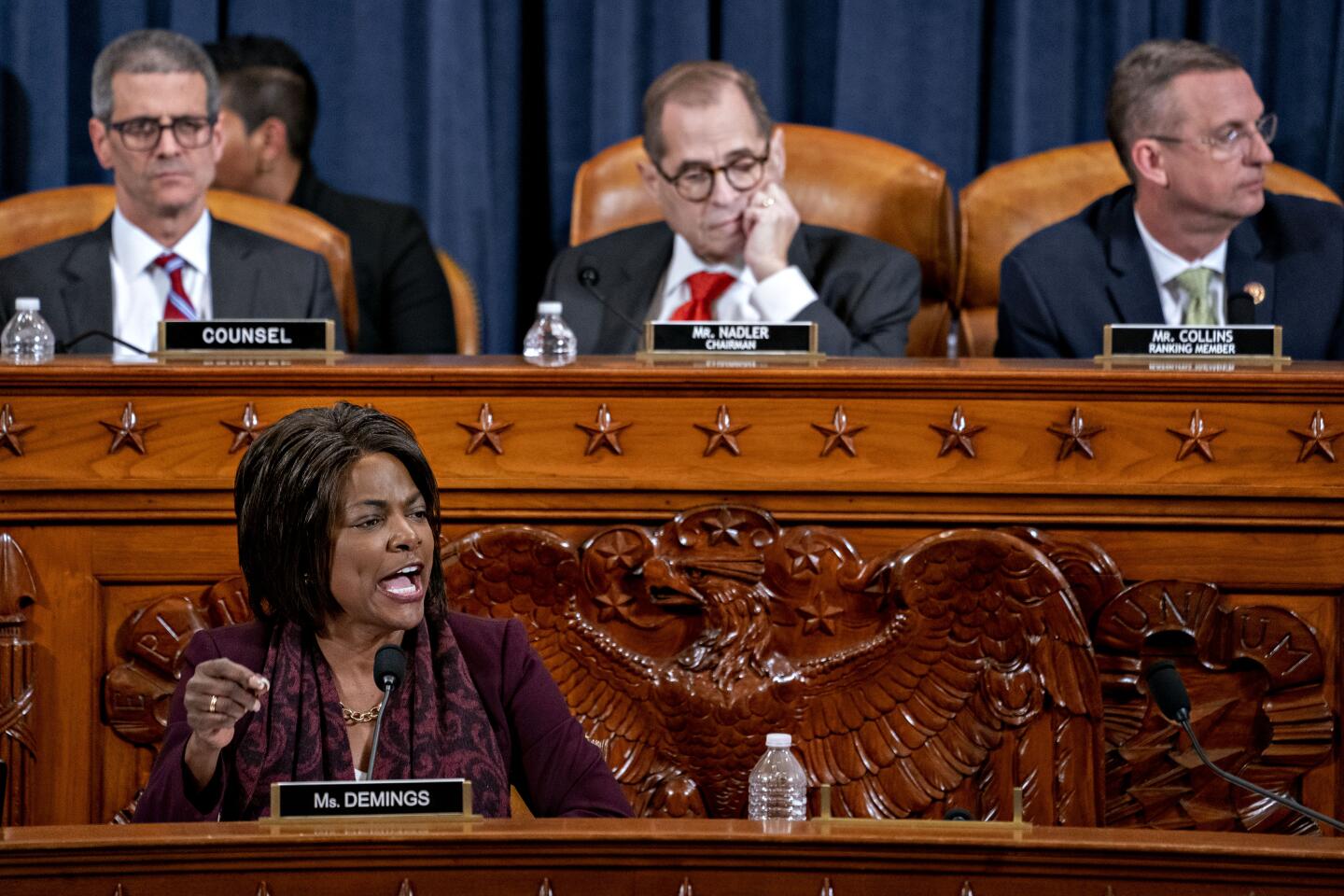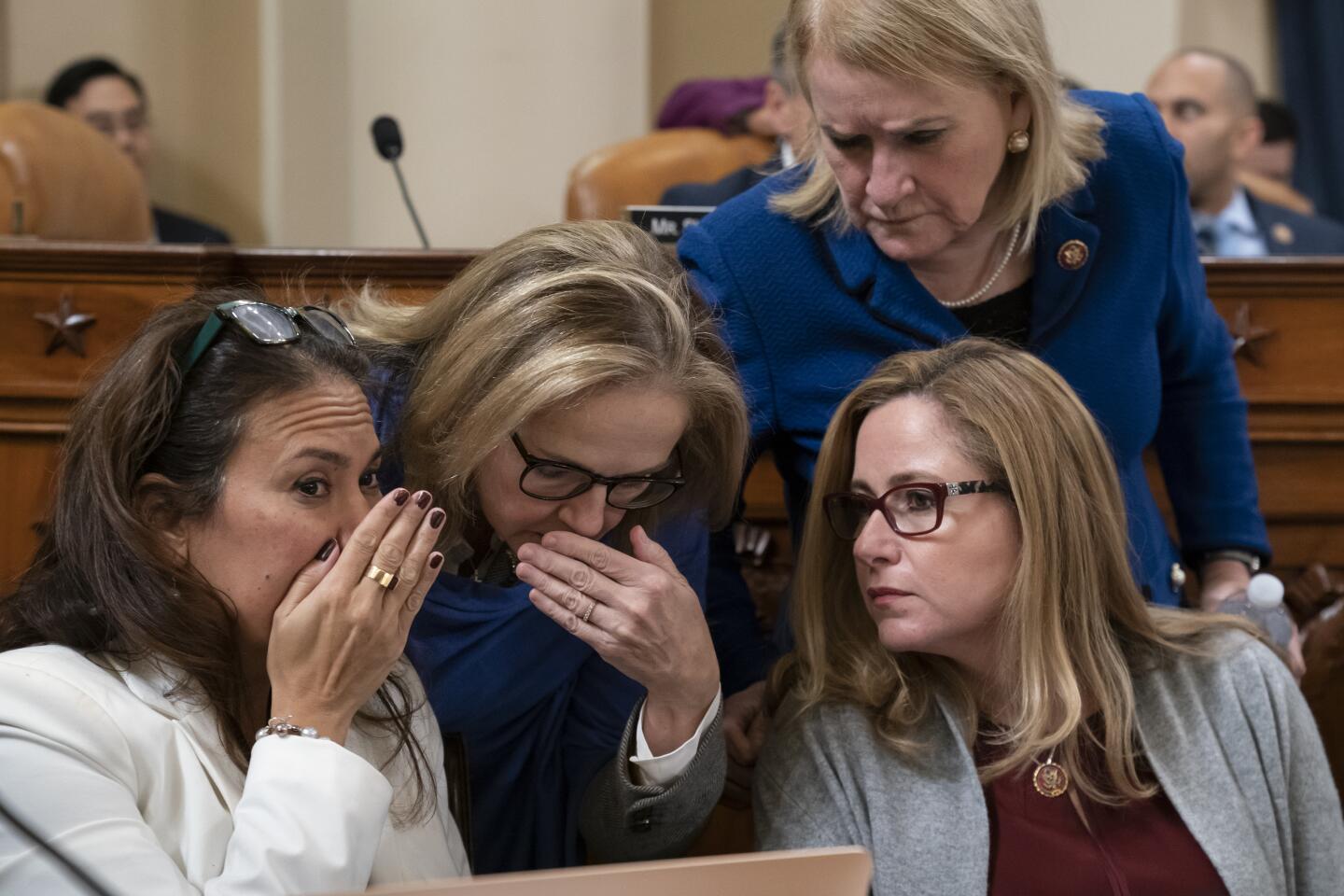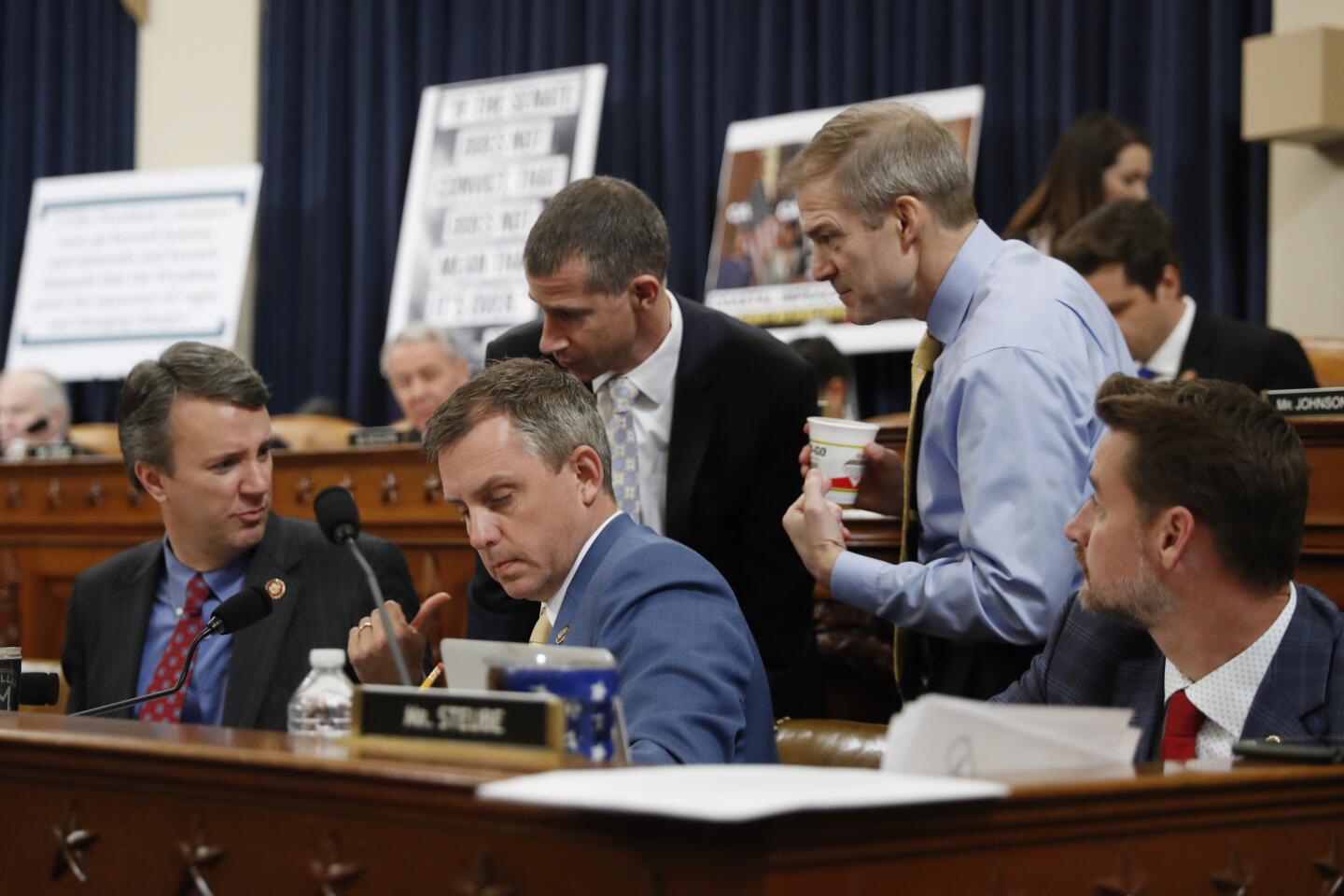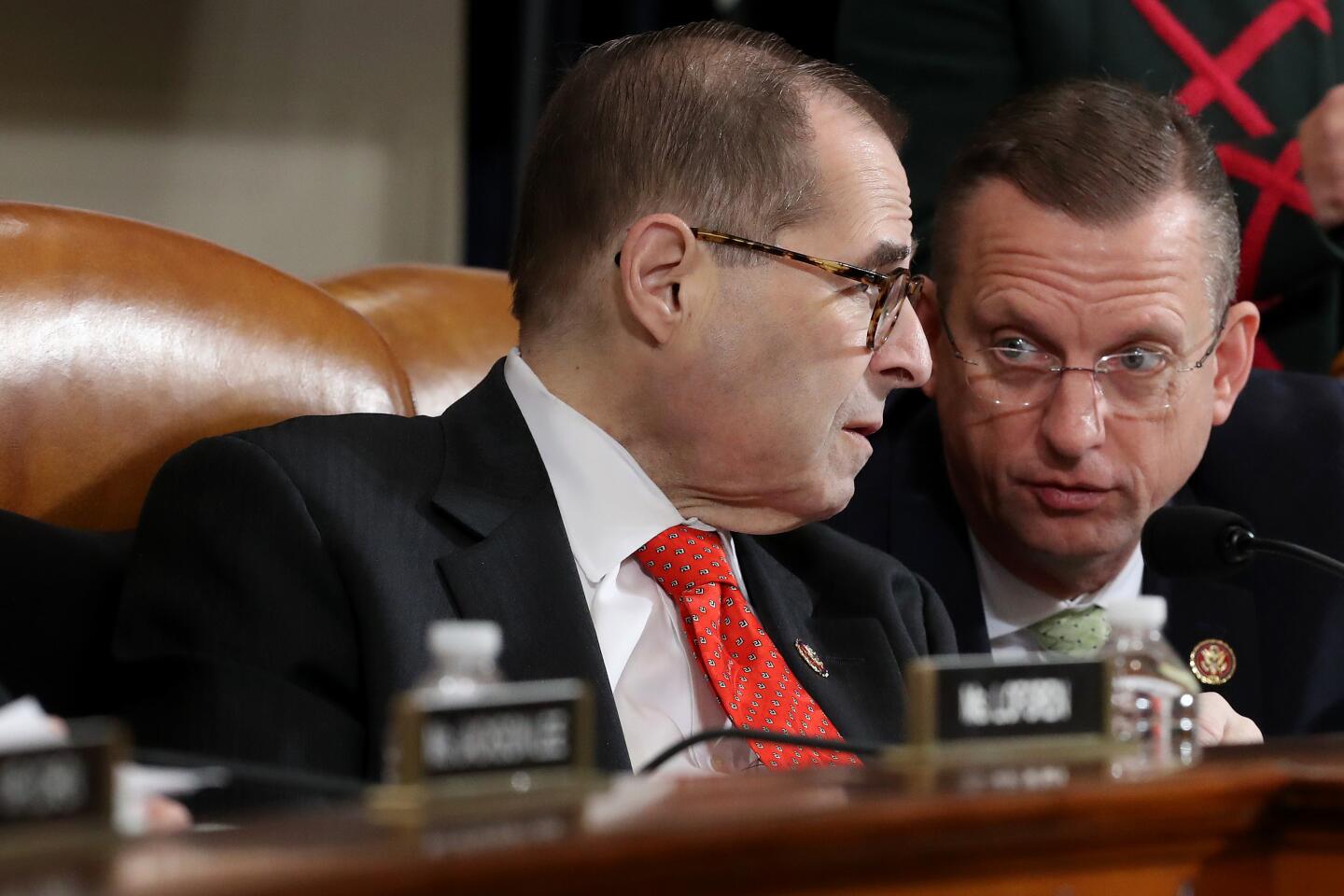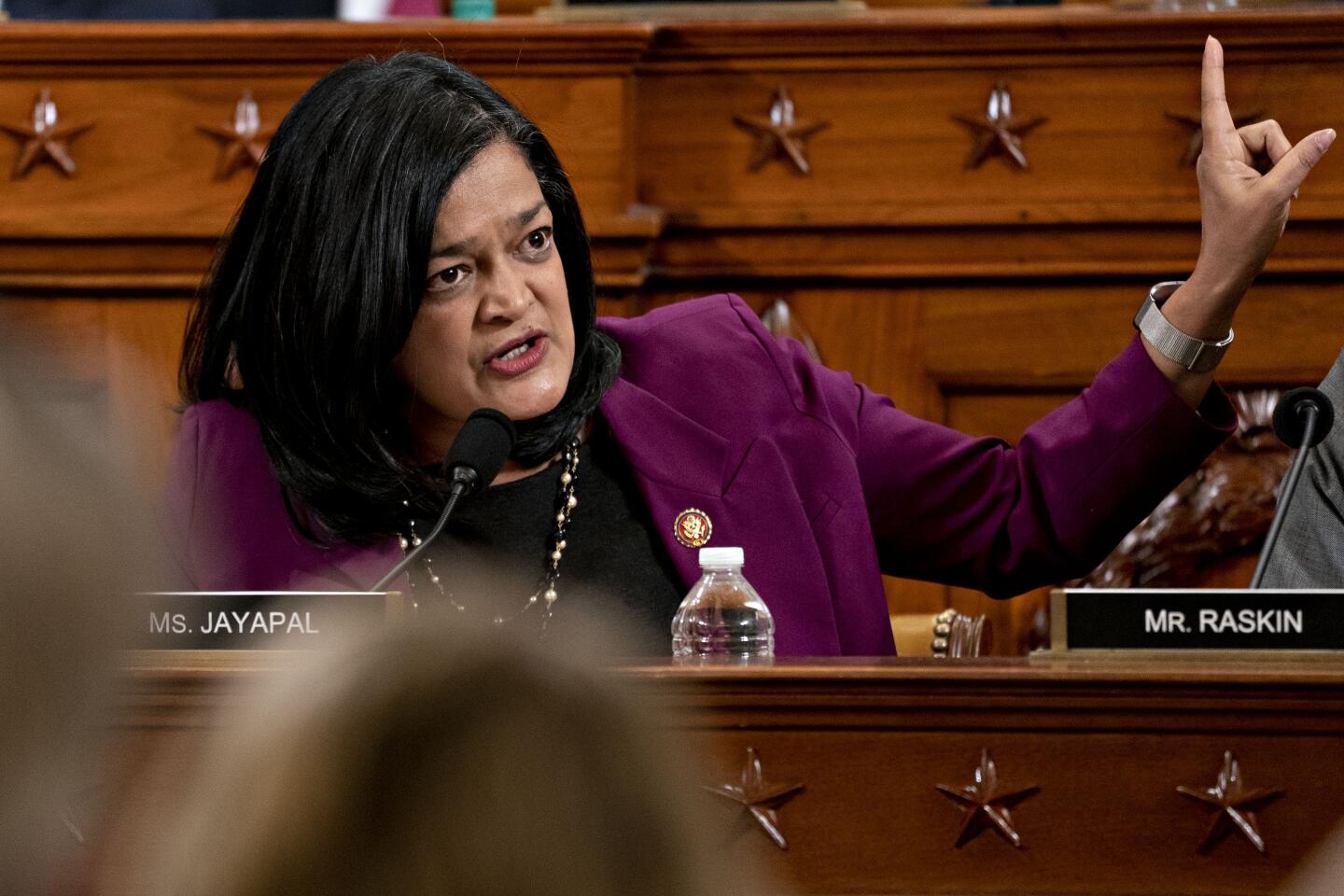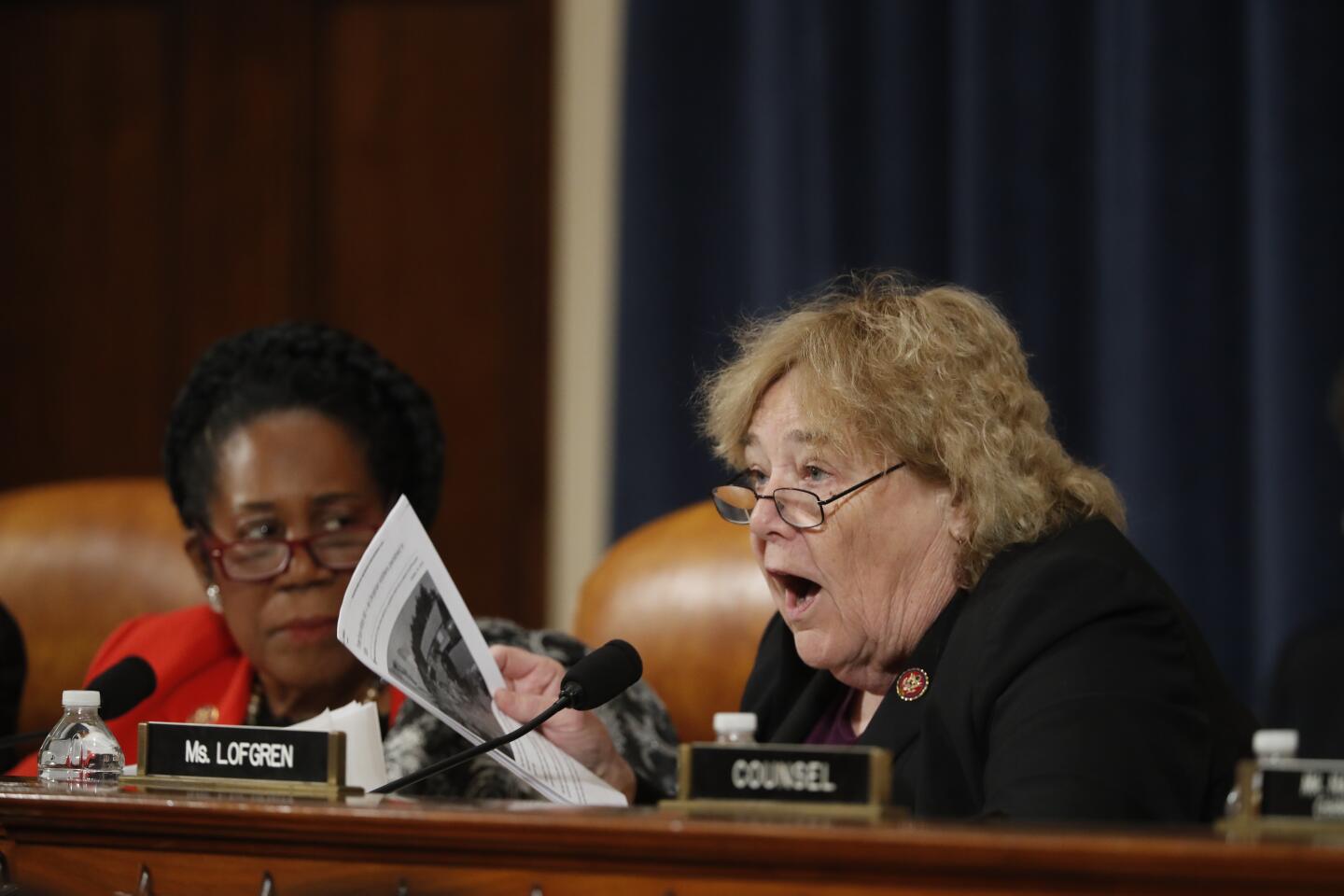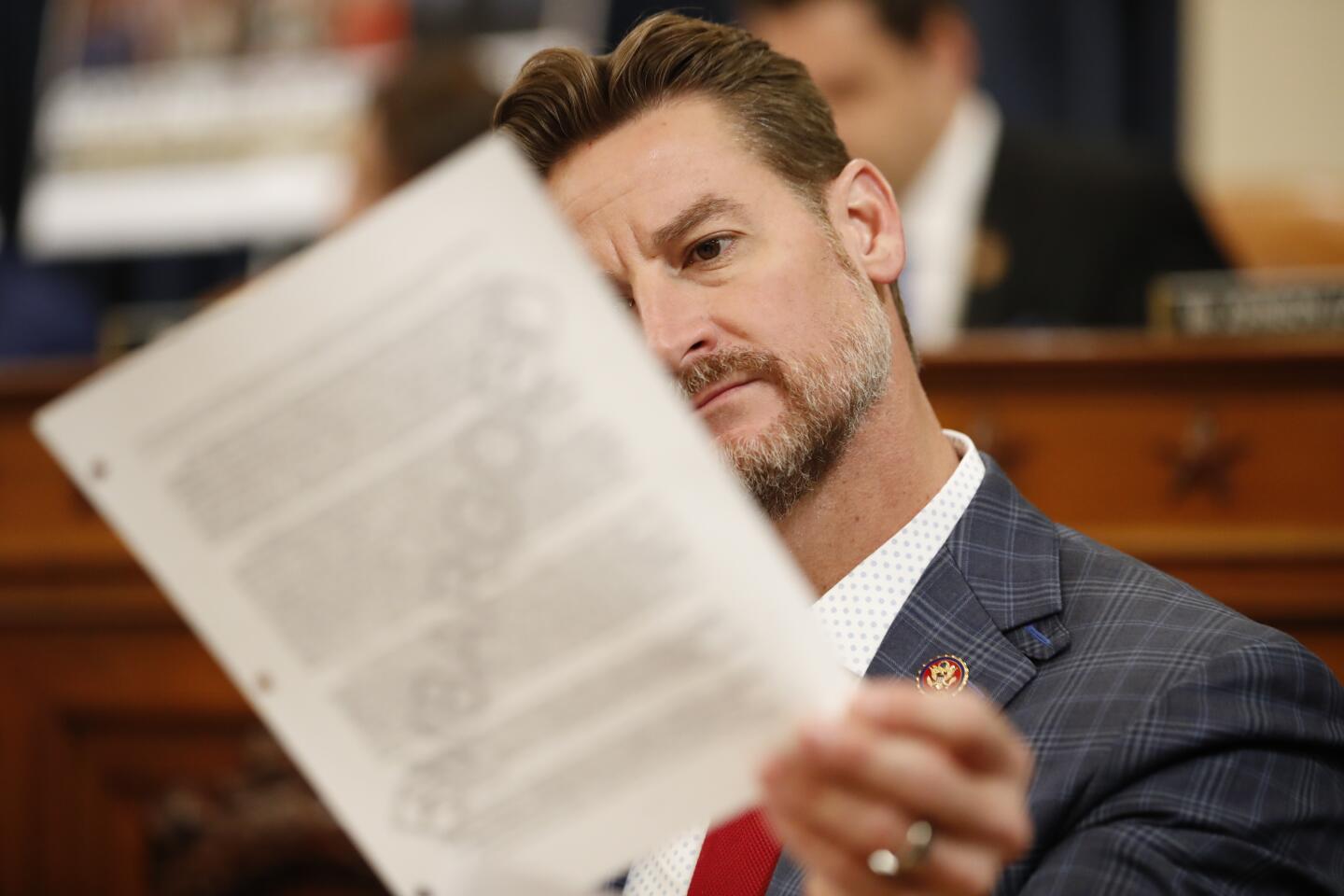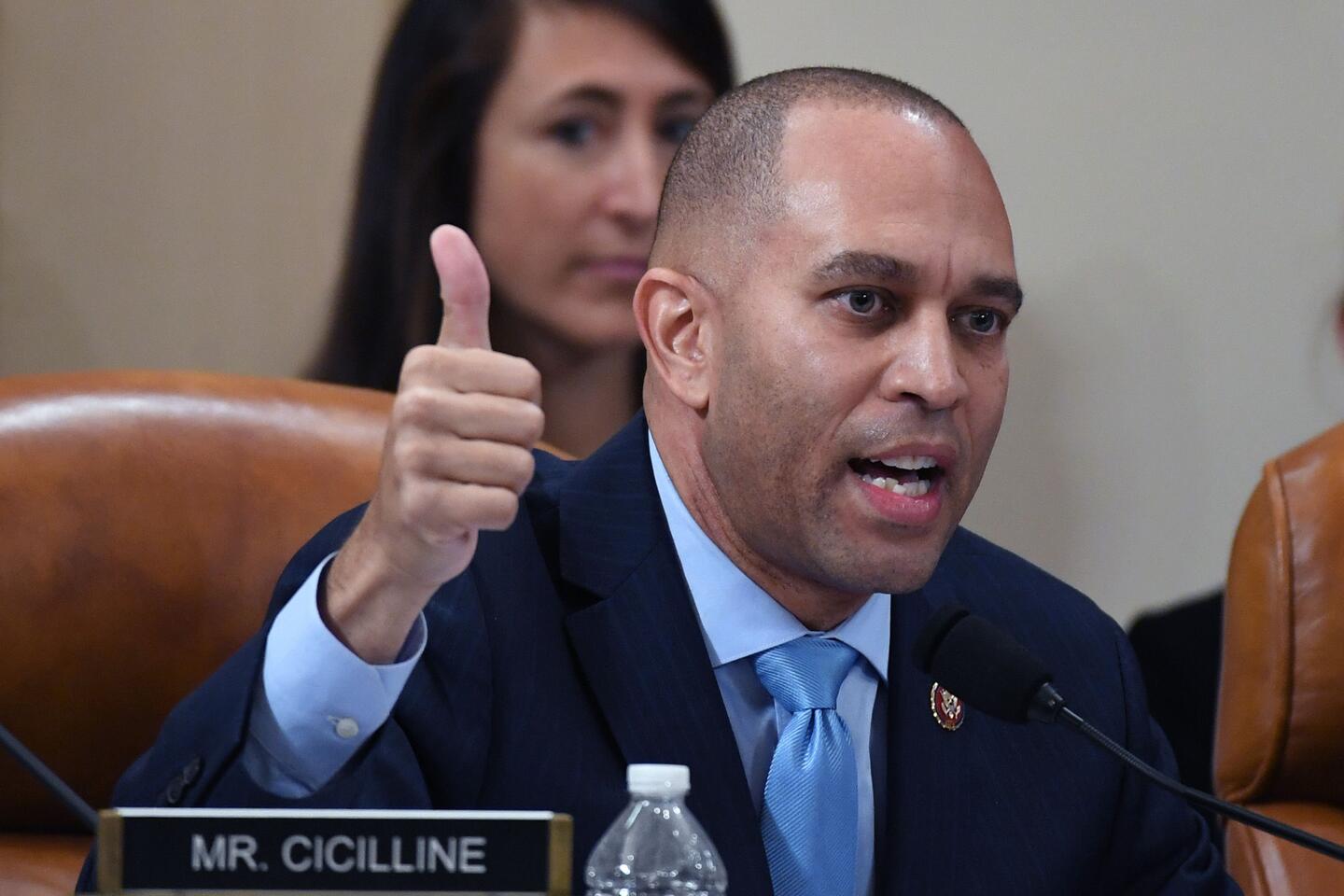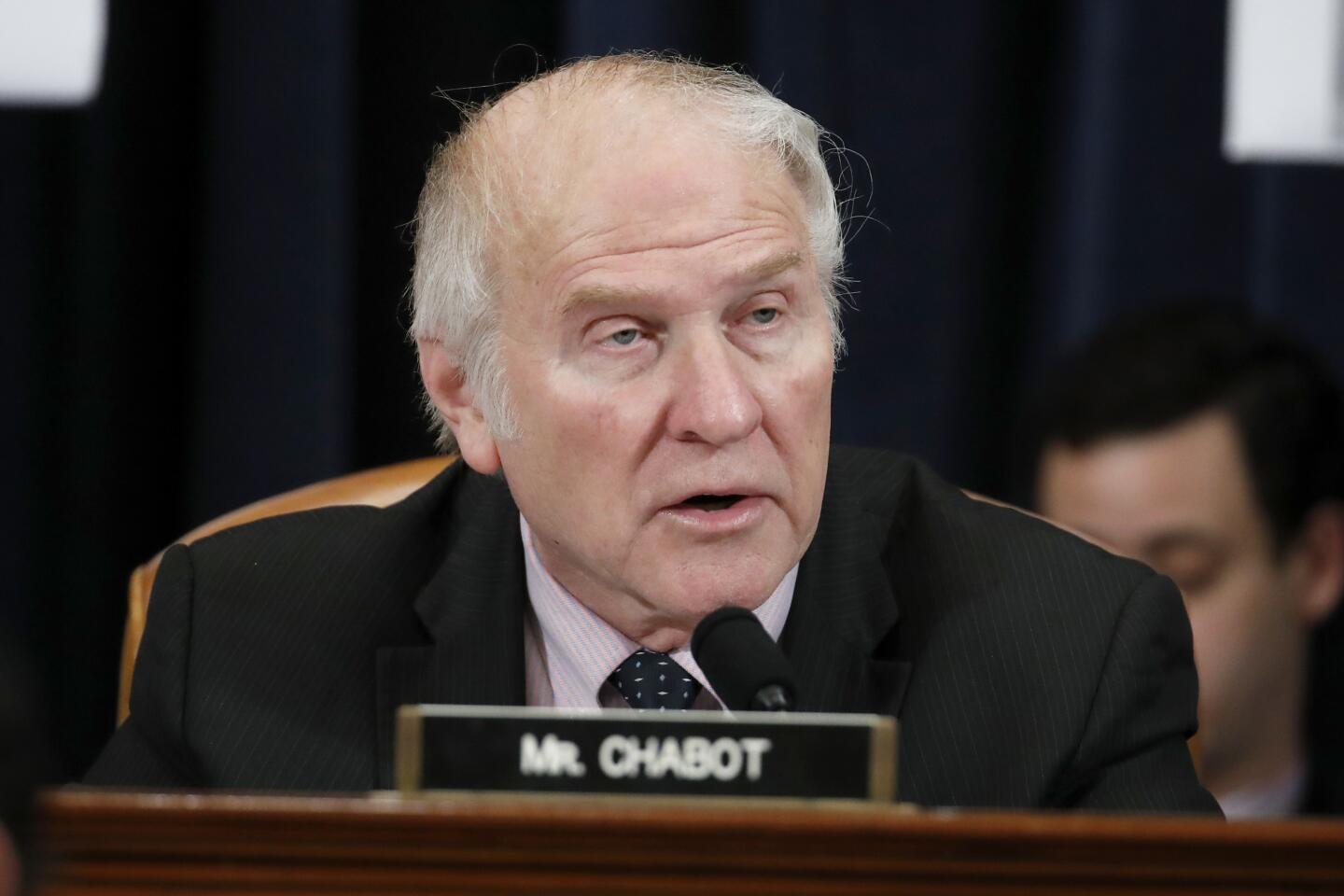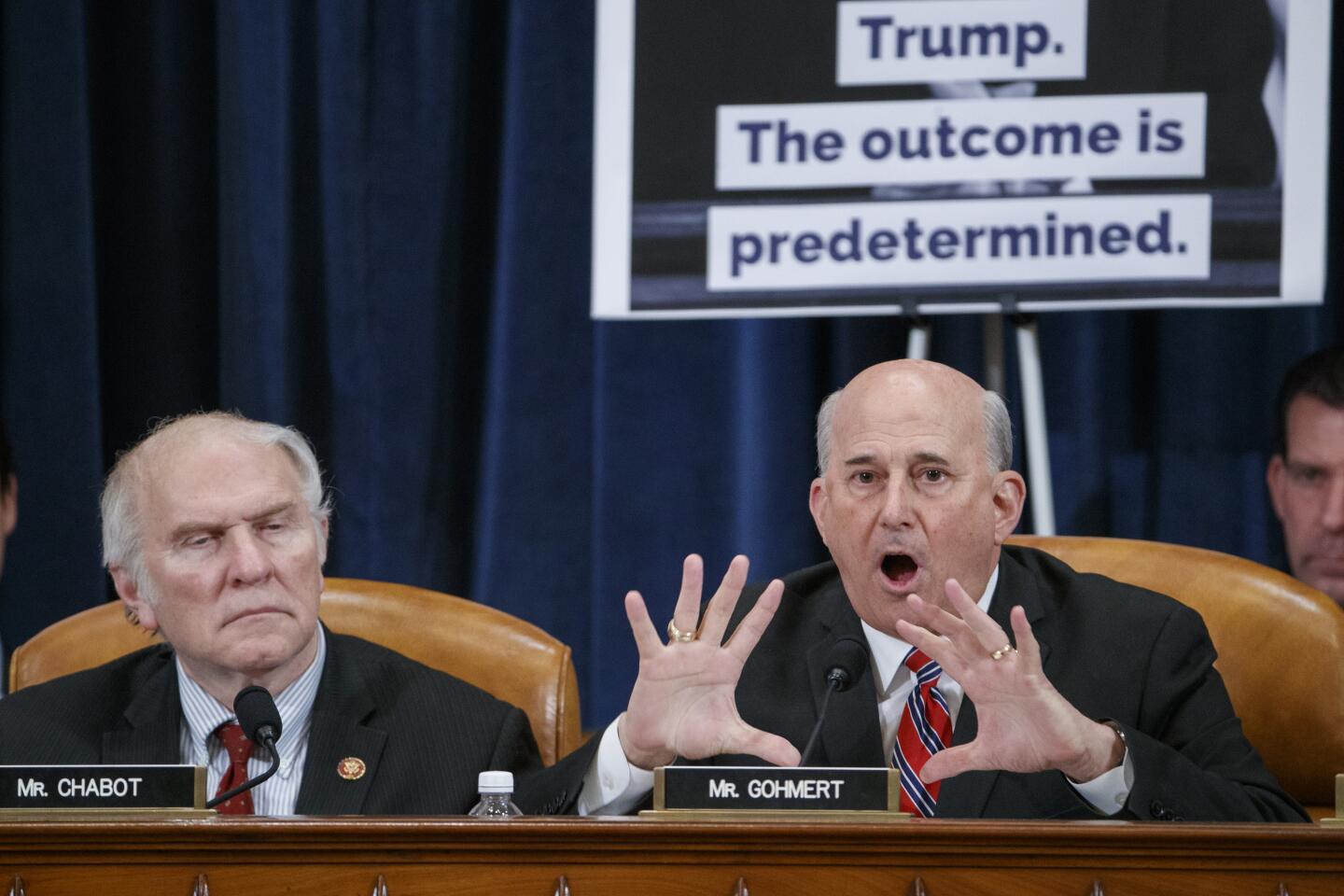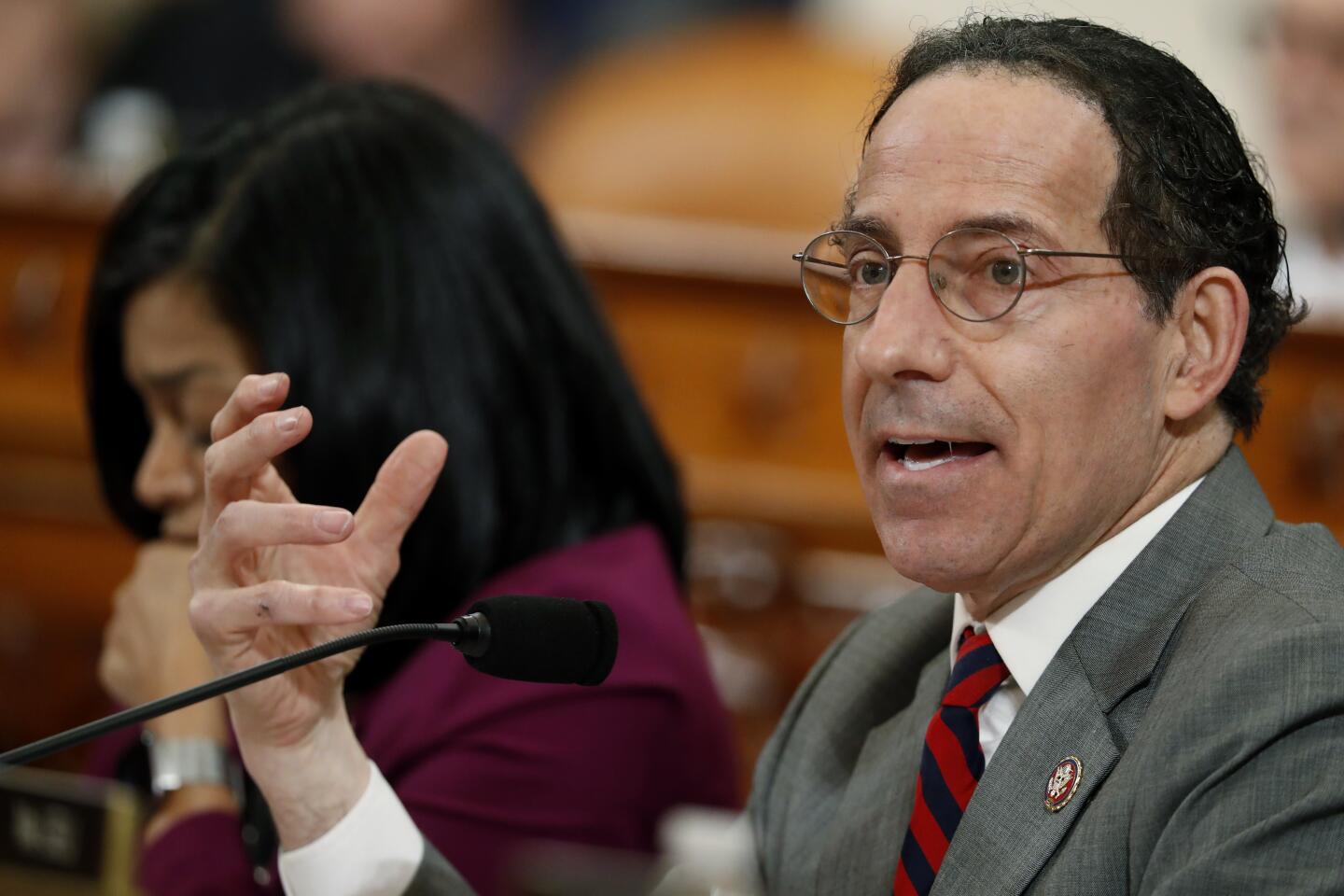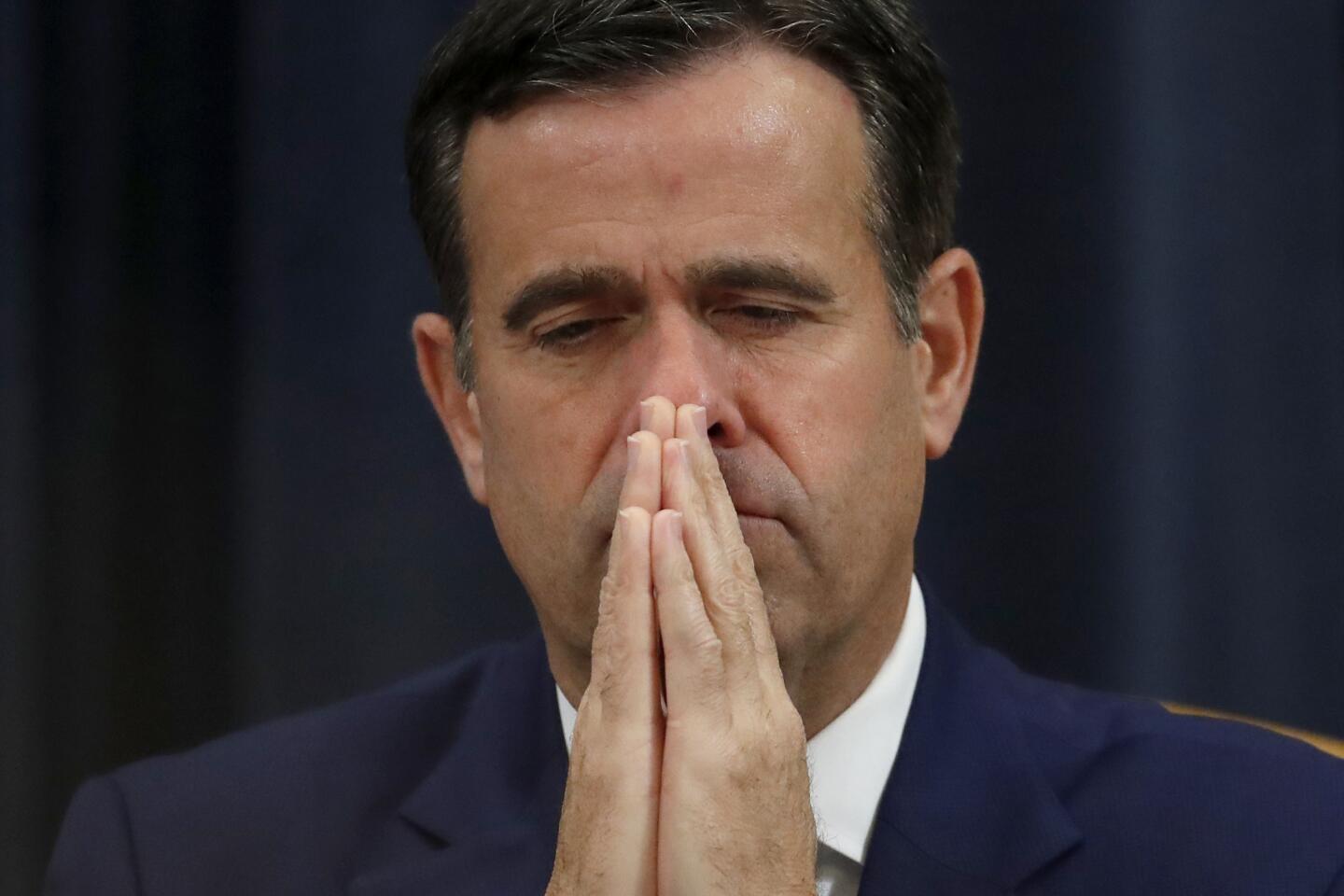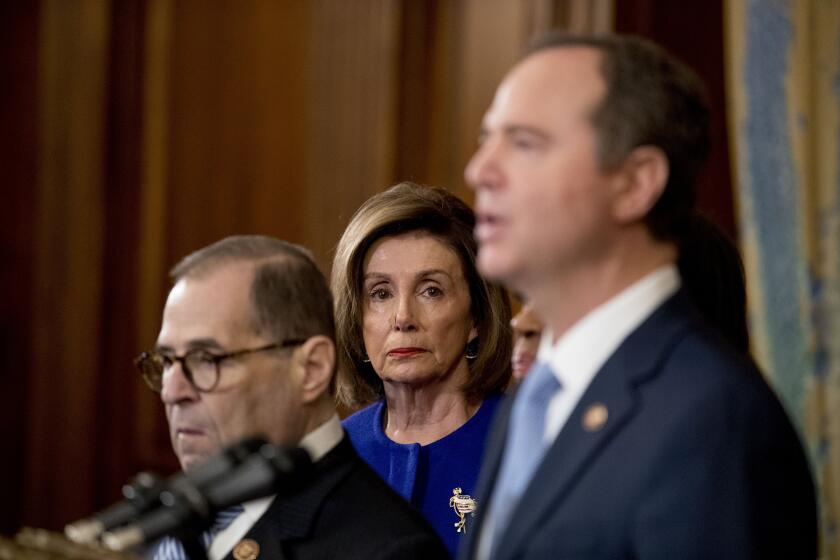Bitterly divided House panel on brink of approving impeachment articles
- Share via
WASHINGTON — After 14 hours of withering debate Thursday that reflected the nation’s political divide, the House Judiciary Committee was poised to approve articles of impeachment against President Trump on Friday.
In a surprise last-minute move, committee Chairman Rep. Jerrold Nadler (D-N.Y.) abruptly concluded the hearing after 11 p.m. Eastern time and delayed a vote until the morning.
“It is now very late at night,” Nadler said, urging members “to search their consciences before we cast our final vote.”
Democrats said they didn’t want a middle-of-the-night vote on such a consequential issue, potentially robbing Republicans of the opportunity to accuse them of pushing through impeachment under the cover of darkness.
Republicans responded with outrage anyway, and ranking member Rep. Doug Collins (R-Ga.) accused Nadler of running a “kangaroo court.”
“This committee is more concerned about getting on TV in the morning than it was finishing its job tonight and letting its members go home,” he said.
With no more GOP amendments expected to be proposed, the vote appears to be a foregone conclusion with Democrats in charge of the committee. They will finalize two articles — for abuse of power and obstruction of Congress — related to Trump’s attempt to have Ukraine investigate his political enemies, a scheme Democrats described as a threat to democracy as the United States braces for another bitter election.
If the committee vote is approved Friday as expected, the full House would vote next week on whether to make Trump the third president in U.S. history to be impeached.
“We cannot tolerate a president subverting the fairness and integrity of our elections,” Nadler said.
No Republicans were expected to vote for the articles, and they accused Democrats of seeking payback against a president they weren’t able to beat at the ballot box — and fear will win reelection next year.
After weeks of investigations, public hearings and nightly sniping on cable news, Thursday’s hearing featured the most direct confrontation yet between members of Congress over whether Trump’s actions merit impeachment and removal from office.
Neither side appeared to gain new ground, each remaining firmly ensconced in partisan foxholes at opposite sides of the committee dais.
Republicans dragged out the proceedings by repeatedly floating amendments to eliminate or water down the impeachment articles, forcing lengthy debates that inevitably ended with Democrats swatting down the proposals. With no witnesses to question and little chance of substantive changes, the hearing took on the tone of people arguing politics at a bar, albeit with more flowery language and strict procedural rules.
Democrats maintained that they were reluctant to impeach Trump, but argued that Congress serves as the last line of defense against a presidency that they say has veered out of control.
“We will uphold our duty to charge the president with the crimes against the Constitution that he has committed,” Rep. Eric Swalwell (D-Dublin) said, “using your taxpayer dollars, jeopardizing the integrity of your vote for a purely political purpose and a purely personal gain.”
Republicans said it is Democrats, not the president, who overstepped their authority in their push for impeachment. They said the case against Trump was the product not of careful investigation but intense hatred of the president and his supporters.
“You can make up all the stuff you want, but the facts are on the president’s side,” said Rep. Jim Jordan (R-Ohio). “They’ve always been on the president’s side.”
Democrats’ case against Trump focuses on his push for Ukraine to launch investigations that would help him politically. He pressed Ukraine to announce an investigation of Joe Biden, the former vice president who could be his Democratic opponent in next year’s election. Biden’s son Hunter had served on the board of a Ukrainian gas company. Trump also wanted Ukraine to investigate a debunked conspiracy theory involving the Eastern European country and the hacking of Democratic Party emails in 2016, an operation that was carried out by Russia.
Trump “betrayed the nation by abusing his high office to enlist a foreign power in corrupting democratic elections,” according to the articles of impeachment. He also “abused the powers of his high office” by directing administration officials to defy congressional subpoenas.
Republicans have repeatedly pointed out that Ukrainian President Volodymyr Zelensky has said publicly he wasn’t pressured by Trump. But Nadler noted that Trump was withholding nearly $400 million in security aid at the time he was pushing Zelensky to announce investigations.
”Of course he denies he was pressured,” Nadler said, “because he knows that if he didn’t deny that, there might be heavy consequences to pay.”
The two articles of impeachment against President Trump don’t mention Russia, but Moscow’s meddling in 2016 underlies the current constitutional crisis.
Several Democrats noted that Trump didn’t withhold congressionally approved aid to the Eastern European country in his first two years in office, and his attempts to have Ukraine investigate Biden began after polls showed the former vice president leading in a hypothetical election matchup.
“He released aid in 2017. He released aid in 2018. And suddenly he became concerned in 2019 right after Vice President Biden announced that he was going to run,” said Rep. Pramila Jayapal (D-Wash.).
Republicans continued to contend that Trump was correct to withhold aid because of concerns about corruption in Ukraine, even though the Pentagon had already certified to Congress that Ukraine had met the anti-corruption conditions needed to receive the money.
“There was a concern whether Mr. Zelensky was the real deal,” said Rep. Andy Biggs (R-Ariz.), pointing to a memo justifying the hold released this week by the White House Office of Management and Budget.
Rep. Mary Gay Scanlon (D-Pa.) dismissed the memo, noting the timing of its release.
“Only now after articles of impeachment have been filed, only now, does the White House come up with an explanation? It’s way too little, it’s way too late,” she said.
Early in the day, the hearing threatened to become sharply personal. Rep. Matt Gaetz (R-Fla.) questioned how Hunter Biden received a spot on the board of a Ukrainian gas company despite his history of drug problems.
Rep. Hank Johnson (D-Ga.) responded by saying that “the pot calling the kettle black is not something we should do,” alluding to Gaetz’s 2008 arrest on suspicion of drunk driving.
House Democrats are politicking for coveted roles prosecuting Trump in upcoming Senate impeachment trial.
Republicans often centered their defense on complaints about the impeachment process rather than insisting that Trump was blameless. They began Thursday by demanding the opportunity to hold their own hearing with their own witnesses, which Nadler described as a ploy to delay the proceedings. He suggested he would be open to such a hearing in the future — a concession that did nothing to placate his critics.
“For goodness’ sakes, we’re voting on this today,” Rep. Debbie Lesko (R-Ariz.) said. “It’s no good to have a date in the future.”
Sometimes the debate turned toward the 1998 impeachment of President Clinton, a reminder of how that process remains an open wound in Washington.
Rep. Zoe Lofgren (D-San Jose), who served on the committee during Clinton’s impeachment, said it was wrong for Republicans to suggest that Clinton had abused his power when he lied about a sexual affair, and then say that Trump had not abused his power when he prodded Ukraine to launch investigations that would benefit him politically.
“If it’s lying about sex, we could put Stormy Daniels’ case ahead of us,” said Lofgren, referring to Trump’s use of hush money to cover up his alleged affair with a porn star. “It’s not before us, and it should not be before us, because it is not an abuse of presidential power.”
Rep. Jim Sensenbrenner (R-Wis.), one of the last House managers from the Clinton impeachment process who remains in Congress, disagreed.
“Bill Clinton lied to a grand jury. That is a crime,” he said. “This is not what is happening here.”
Assuming the full House votes next week to impeach Trump, as expected, the Senate would conduct a trial early in the new year. With Republicans in charge of the chamber, and a two-thirds vote required for conviction, it’s unlikely that Trump will be removed from office.
More to Read
Get the L.A. Times Politics newsletter
Deeply reported insights into legislation, politics and policy from Sacramento, Washington and beyond. In your inbox three times per week.
You may occasionally receive promotional content from the Los Angeles Times.

